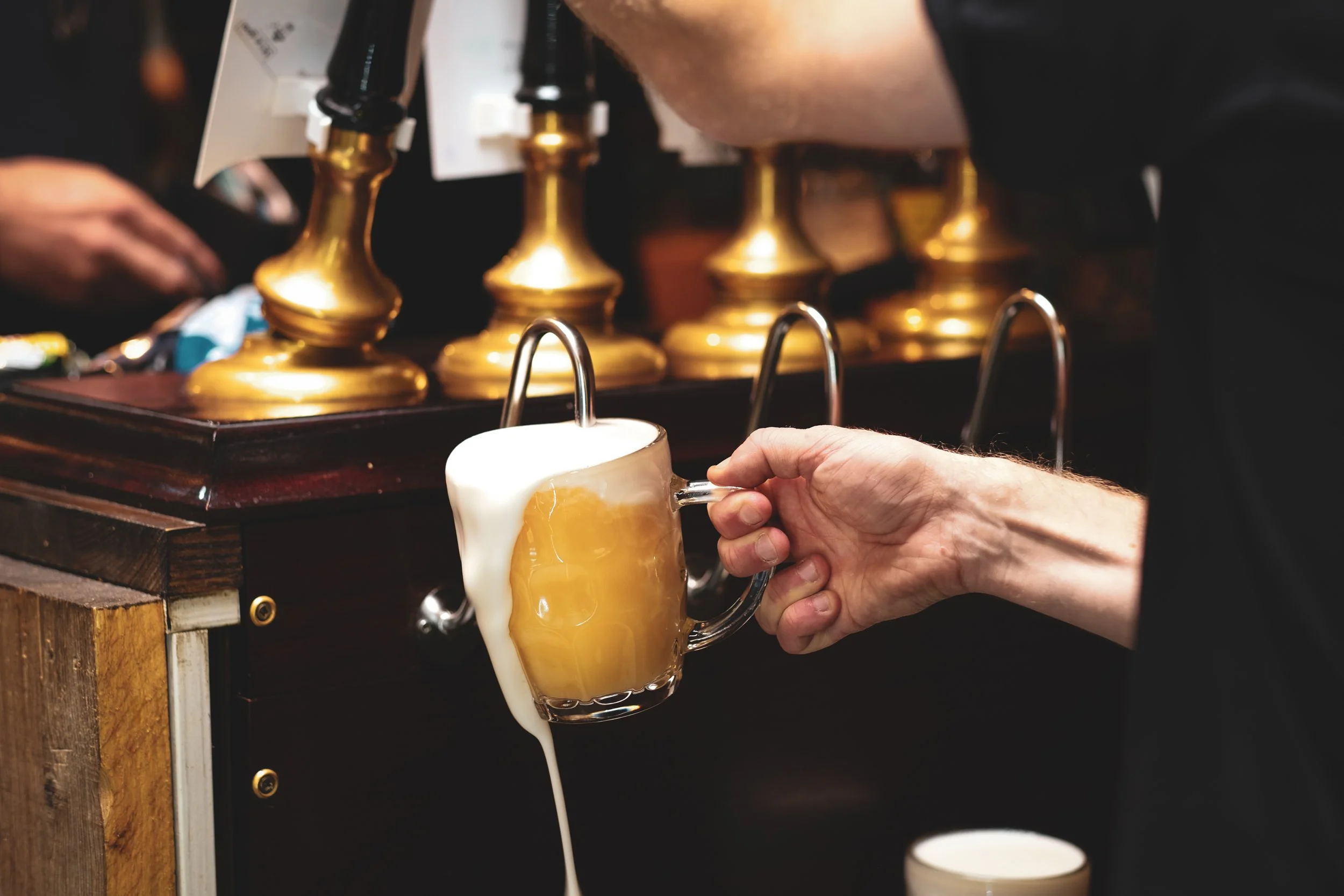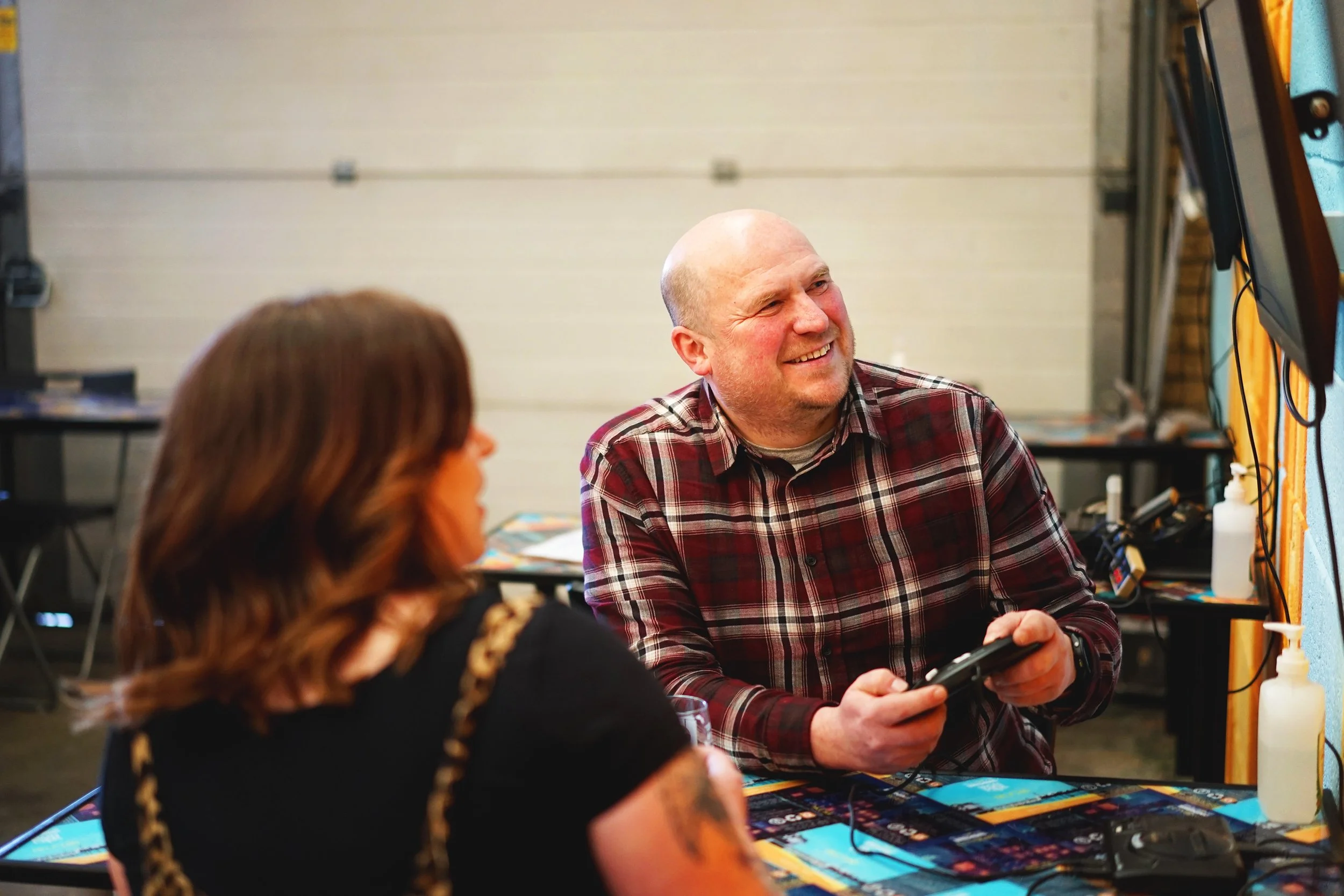Talk of the Town — The Shirkers Rest in New Cross, London
Whenever I visit New Cross in South London, I remember the hope. And the hostility. I moved there 20 years ago and still live nearby. It’s where I first truly felt free—my first London flat and a new job a bus ride away.
Before I unpacked my possessions, I visited what I thought would be my local. At the empty bar, before I could place my order, the bartender looked at my brown face disappointedly, shook her head and stated: “This is a Millwall pub.”
These words were a code for “you’re not welcome here”. Without arguing, I left.
Photography by Lily Waite
I now realise that this was the colour bar in action, because I’ve spoken to numerous black residents who told me they preferred to visit pubs in other areas or huddled together in pub chains.
Some of New Cross’ other pubs could be inclusive, like the now-closed Montague Arms, which often would suddenly spring into life when coaches turned up with revellers. But I always got the feeling that I was being tolerated and not celebrated.
Despite being local, I was never a local.
The Shirker’s Rest, which opened on New Cross Road in summer 2022, is the silver bullet to the heart of this exclusion, and its most surprising feature is that it’s a micropub inspired by very traditional iterations of this particular style of venue. Micropubs, for me, are intimidating places to venture into, as the first ones created in Kent often overplayed that ‘tradition’ by serving cask directly from barrels, refusing to play music and forcing people to listen to the locals chat.
Because of this I’ve had to endure a fair few problematic conversations—I remember visiting the Firkin Frog, in Herne, Kent and feeling completely out of place. So much so that I kept my folding bike visible so that all the regulars who were droning on about immigration wouldn’t see me as another “invader”.
The Shirker’s owners (Duncan Hart, Dave Crewdson, Graham Dodds, Andy Stockbridge, Andy Grumbridge and Ben McNamee) love micropubs despite my valid concerns.
These are the ones inspired by Martyn Hillier, who opened Butcher’s Arms, also in Herne in 2005 in a formerly unlicensed premises, such as the Walmer’s Freed Man (a former post office) or the Four Candles in Broadstairs—but the Shirker’s owners wanted their version to be more inclusive. More modern.
“They were bastions of ‘un’ modernity,” Andy Grumbridge tells me. “You weren’t allowed to use your phone—some micropubs would have phones nailed to the walls. And, even though they won’t admit it, they started as predominantly male spaces. Some grew up a bit and became more open, such as the Fez in Margate.”
““In London you don’t get multi-generational spaces very often—apart from a Wetherspoons on a Friday night.””
“In London you don’t get multi-generational spaces very often—apart from a Wetherspoons on a Friday night. When you get the mix right of the young, the old, the poor, the rich, then magical things are going to happen,” he adds.
The layout of this particular micropub means the ‘magic’ will cause people’s inhibitions to disappear and I often overhear a diverse bunch of people starting up conversation for the first time. It feels like an island, especially as outside is the hubbub of the A2, a loud moat encircling the wizardry inside.
“On an average day," adds Andy, “you'll find art students [Shirker's is directly opposite the entrance to Goldsmiths university] chatting to old gits. You are encouraged to talk—you almost meet incidentally.”
***
Andy realised he wanted to run a pub when the world went into lockdown in early 2020, when all hospitality businesses were forced to close. Like me, he healed his pain by walking to different shuttered pubs but he took it a stage further by obsessively choosing a ‘new’ one each day, even chronicling them on social media.
His criteria was the pub had to be within an hour's walk from his house and he did this for 120 consecutive days, strategically picking pubs nearby on rainy days.
“I found a lot of pubs I’d never been to before,” Andy says. “But I felt so sad to see them all closed. And that was the first time I had a feeling that maybe it would be good to go from being an end user to opening one to counter this great pub pox that was going on round the world—because we knew many wouldn’t survive and reopen. Many did open but with less cask.”
Andy’s day job was running a website called Deserter, alongside author Vince Raison, and with help from Shirker’s Rest co-owner Duncan. It prides itself on providing content (in both senses) for wannabe shirkers—popular blogs include how to call in sick and the history of crisps. [We’re big fans here at Pellicle—Ed.]
It saw its mandate to list the “holy trinity” of pubs, beer and good times. But opening a pub is hard work, and although it sounds like a good idea in theory, it’s one that could easily fail. That’s where Ben, Andy and Dave came in, as they ran a series of pop-ups in south London, including the very successful Camberwell Shark, but were still searching for a permanent home.
The Sharks met the Shirkers during one of the pop-ups, and they realised they had a shared love of micropubs. At the time, Ben was a local at the Samuel Oldknow in Marple, a town on the outskirts of Stockport, Greater Manchester. His dad lived in the town and had dementia so he travelled there often from London.
They discovered a property in New Cross which was being converted into a restaurant, (that’s why the bar has a peculiar shape, as it was going to be a kitchen with an overhead giant extractor fan.)
“We tried to create a pub that reflected the six of us,” Ben says. “They liked the interior of the Fez and I liked the Oldknow which feels like a scaled down version of a traditional pub.”
By coincidence, I was also a frequenter of the Samuel Oldknow because my partner’s parents live in the area (Ben even went to the same school as them) and when I stepped into the Shirker’s I had this really odd feeling I was being transported to the North West.
There were smoked beers from Torrside brewery in New Mills, Macclesfield’s RedWillow and a cult favourite of mine—Sonoma from Track Brewery in Manchester; a hazy pale ale with bursts of grapefruit tones. Also, as in Stockport, the beers were competitively priced.
In fact, during a happy hour it's common to get an excellent beer (like Anspach & Hobday’s The Ordinary Bitter, white labelled as house bitter) for just over £3. Ben’s influence runs deep here as he likes competitive pricing as much as he does sparkled cask ale.
““We tried to create a pub that reflected the six of us.””
He looks after the buying side, while it’s fair to say Andy oversees the social end, with many events tied into the Deserter following and by holding court on the pub’s iconic rickety rocking chair. But Ben isn’t a traditional publican and still works a desk job as a civil servant.
“If I’m being honest I’m not passionate about my day job,” Ben tells me. “For the last six, seven years all my energy has gone into [pubs]. What I thought would sell is what I want to drink and it can be northern beers like a Marble [Brewery] cask I have in the cellar at the moment.”
This shows the importance of cask in achieving inclusivity—three lines of interesting beer are always common as well as numerous captivating keg offerings, such as Nico a Köln-style top fermented lager made by South London’s Orbit Brewery. The cask brings in traditional drinkers, beer lovers and those seeking something different.
Outside of London, in places like Marple where cask is king, this isn’t a big deal but in south-east London, with its proliferation of keg-heavy gastropubs, it’s an absolute gamechanger.
By way of example, bar manager James Burton grew up in the area and had no idea what cask should taste like—he even told the guys in his interview that he didn’t like beer.
“Any time I had cask it was oxidised or really vinegary,” he damningly reveals.
James may have favoured cocktails before he worked at The Shirker’s Rest but he brought expert customer service, plus a few regulars who enjoyed his company at the other bars he managed nearby.
He also now runs an expert cellar after the owners paid for him to go on courses before the Shirker’s opened. James now prefers cask beer to any other drink on the bar, and can deftly manage the cellar—knowing instinctively which beers are more lively and need less conditioning.
While the others help with the administration and publicity of the pub, James is the one that gets his hands dirty and provides the graft—he built the bar with a friend called Pete Lyons and created the beer boards. He also provides the (slightly deadpan) personality.
At the bar is a notebook called James’s Book of Sayings which includes his recurring requests for customers to slide the toilet door closed, look at the boards to see what’s on offer—the keg badges are not easily viewed—and for Ben not to crowd his cellar with too much beer.
It’s all affected, of course, as he’s a lovely disarming presence and the book itself was a birthday present from the bar staff he manages— the “sweetest gift I’ve ever had,” he says. It’s part of the many factors that makes The Shirker's work when lots of pubs in the area are closing down—gastro pubs particularly.
“When we opened people couldn’t imagine it working with so many pubs shutting,” James says. “There are still a lot of pubs in New Cross but they’re not competition. Peckham and Deptford are becoming gentrified and we’re right in the middle—there was something missing and we filled it.”
The location of a busy road, sandwiched between numerous fast food joints with food delivery app motorcyclists buzzing around, means a lot of visitors to the Shirker’s come here expressly to chat. Something which maybe wouldn’t have happened pre-pandemic because, according to James, the pub would be full of students who now favour house parties. It’s also near a lot of gig venues and it’s the place to meet before, when conversation can be enjoyed without shouting.
And it’s this chat that is something all the various parties prize above else in the Shirker’s.
“People are almost brainwashed into sticking to their friendship groups and being isolated,” James says. “What’s missing is people going to public houses, meeting new people and just chatting. This is like a little living room.”
And I think back to 20 years ago when I left my living room expecting to visit a home away from home and found something else instead. Gone is the hostility. Gone is the exclusion. Gone is the colour bar.
And in its place it’s been replaced by something that I’ve been seeking for decades: a community.









































